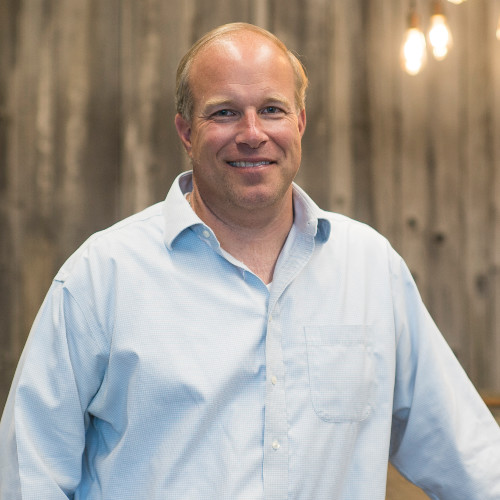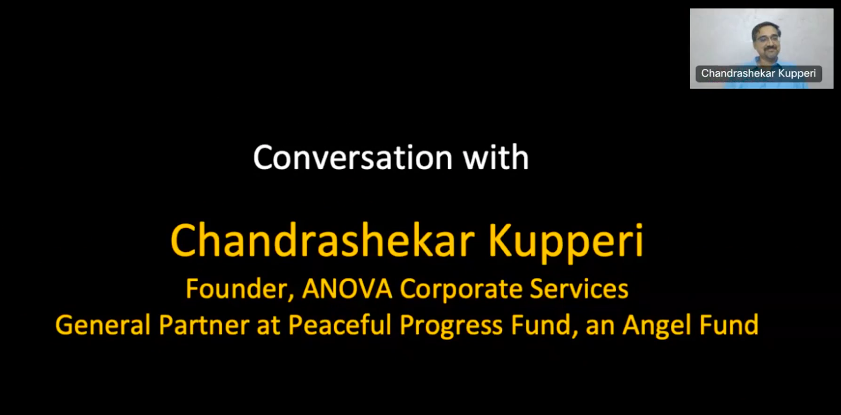Seed Capital
1Mby1M Virtual Accelerator Investor Forum: With Bill Baumel, Managing Director of Ohio Innovation Fund (Part 3)
Sramana Mitra: It’s great to hear about all these activities. We have seen many ecosystems come up through our work. We try to cover a lot of these companies. Utah is a very good example. They’re a bit ahead of you, because they’ve had sizable exits. That has created angels and seed money. Ohio probably has better bridges with New York than with Silicon Valley.
Also now, things have changed in Silicon Valley. As you know, people used to only want to invest in local companies. That is not the case now. Investors are happy to invest in companies as long as the business models are proven and are venture-scale business models. The globalization of entrepreneurship is in full swing right now. It’s wonderful.
>>>1Mby1M Virtual Accelerator Investor Forum: With Bill Baumel, Managing Director of Ohio Innovation Fund (Part 2)
Sramana Mitra: You said earlier that your preferred funding round is Series A where you put in a million or so in that round. In some cases, you do some seed investment. Could you talk about how Ohio entrepreneurs are getting to Series A? Is there a seed ecosystem that is supporting or is there more of a bootstrapping tendency or bootstrapping culture that is going straight to Series A?
>>>1Mby1M Virtual Accelerator Investor Forum: With Bill Baumel, Managing Director of Ohio Innovation Fund (Part 1)

Bill Baumel, Managing Director at Ohio Innovation Fund, is one of the pioneers of the Ohio startup ecosystem.
Sramana Mitra: Let’s start with some introduction to where you are with your work with Ohio Innovation Fund. What’s happening in Ohio as an ecosystem?
>>>577th Roundtable Recording with Chandrashekar Kupperi, Peaceful Progress Fund
In case you missed it, you can listen to the recording of this roundtable here:
577th 1Mby1M Entrepreneurship Podcast with Chandrashekar Kupperi, Peaceful Progress Fund
Chandrashekar Kupperi is General Partner at Peaceful Progress Fund, an angel fund in India. We have some very interesting discussions on consumer startups in India, especially the ones targeting lower economic strata consumers.
Podcast: Play in new window | Download
Subscribe: Apple Podcasts | Android | Google Play | Stitcher | TuneIn | RSS
Roundtable Recap: June 2 – Don’t Pitch Investors Prematurely

During this week’s roundtable, we had as our guest Chandrashekar Kupperi, General Partner at Peaceful Progress Fund, an angel fund in India. We had some very interesting discussions on consumer startups in India, especially the ones targeting lower economic strata consumers.
T-Ora
As for the pitches, up first we had Karthikeyan R. from Singapore pitch T-Ora, a solution for fact checking fake news.
Zabble
Next we had Nik Balachandran from Walnut Creek, California, pitch Zabble, a waste management software.
Enthu.ai
Then we had Gaurav Mittal from Chandigarh, India, pitched Enthu.ai, an AI solution for contact center call analysis.
You can listen to the recording of this roundtable here:
1Mby1M Virtual Accelerator Investor Forum: With Steve Eskenazi, Angel Investor (Part 1)

Steve Eskenazi is an Angel Investor, and we had a number of interesting trend conversations.
Sramana Mitra: Let’s start with a little bit of your background. Tell us about what path you have traveled.
Steve Eskenazi: My career has three distinct phases. In the 1990s, I was Wall Street’s digital media analyst introducing Wall Street to companies like America Online and Electronic Arts. For the next 10 years, I was a venture capitalist for a firm called Walden VC where we invested in internet, SaaS, and digital media companies.
>>>1Mby1M Virtual Accelerator Investor Forum: With Andrus Oks, Founding Partner of Tera Ventures (Part 3)
Sramana Mitra: The other advantage you have is, there is a substantial enterprise software buyer market in Europe as well. The Indian buyer market is not as mature. Europe has lots of large enterprises that buy a lot of technology. You could build a substantial business catering to European enterprise customers. That’s one observation.
The second one is that language is an issue in Europe more than in India. In India, the business operates mostly in English. There’s a bit more of a language issue in Europe. English is, not necessarily, the lingua franca of Europe. In your region, English is more of the lingua franca.
>>>